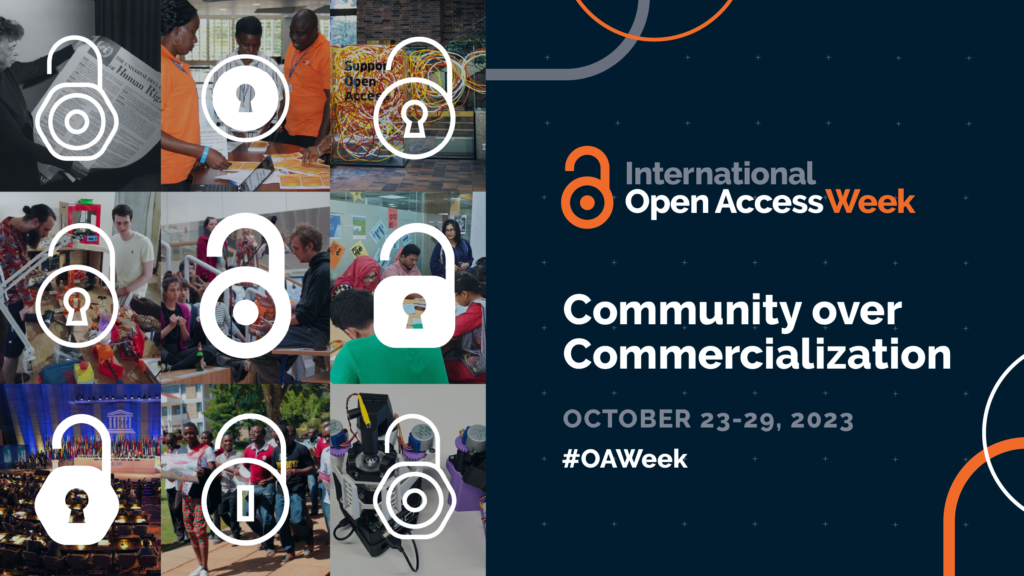A Very Merry Open Access Week to You
By Hannah Herrlich, Emerging Technologies Librarian

Happy Open Access Week 2023!
Open access is a topic near and dear to my heart. Maybe that’s because I poured my blood, sweat, and tears– ahem, I mean- spent the last two semesters of library school (yes, librarians have to go to graduate school!) researching the cycle of scholarly communication and how open access resources are used within academic publishing circuits. Fortunately, I graduated, and perhaps more fortunately for all of my friends and family, they no longer had to hear me blab on and on about the injustices of paywalls and the unfair monetization of knowledge. But I digress! Though, if you’re sincerely interested in learning more about my research endeavors, please feel free to check out the culmination of my work condensed into this peer-reviewed article in Internet Reference Services Quarterly.
But enough about me! Let’s delve into the main character of the week- Open Access.
According to the Scholarly Publishing and Academic Resources Coalition (SPARC), open access is the free, immediate, online availability of research articles combined with the rights to use these articles fully in the digital environment. Open access is the needed modern update for the communication of research that fully utilizes the Internet for what it was originally built to do—accelerate research.
Phew, that is a passionate explanation. But what does it all mean?
Essentially, open access (or OA, as those in the know call it), is a broad term used to describe materials that are freely disseminated and available to all. Accessible work has no paywall and requires no login authentication to access an otherwise pricey journal article that is usually unavailable to students and academic employees (i.e. university faculty and staff). In short, open access is an umbrella term used to identify information that is free of cost and without restrictions.
There are also different types of open access. For example, Green OA is used to describe the process of depositing published articles in free and accessible digital repositories, sometimes after a delay known as an embargo period. Additionally, Gold OA is the process that gives readers immediate, unrestricted, online access to articles for which the publisher usually receives payment in the form of article publication (or processing) charges (which are usually paid for by the author themselves or their institutions).
Overall, open access is a hot-button topic, and accessible databases and repositories are becoming more commonplace within academia. Perhaps you’re already familiar with the Directory of Open Access Journals (DOAJ) or the Directory of Open Access Books (DOAB)? All of this is to say that it’s important that we continue to strive for a world in which more accessible resources are made widely available to all interested researchers. And this Open Access Week is an opportunity for the academic and research community to continue to learn about the potential benefits of open access, to share what they’ve learned with colleagues, and to help inspire wider participation in helping to make open access a new norm in scholarship and research.
So, from the Fordham University Libraries to you- Have a splendid Open Access Week! If you have any further questions, please feel free to check out this page on our Scholarly Communication research guide, and as always, you can use our 24/7 chat service, Ask a Librarian.


